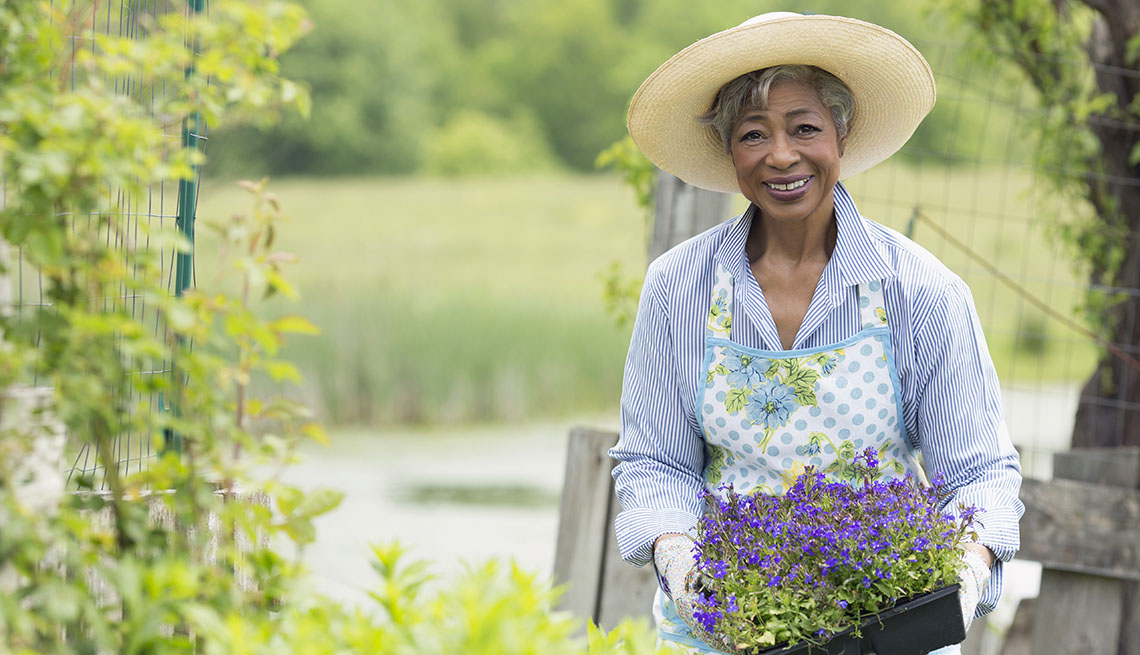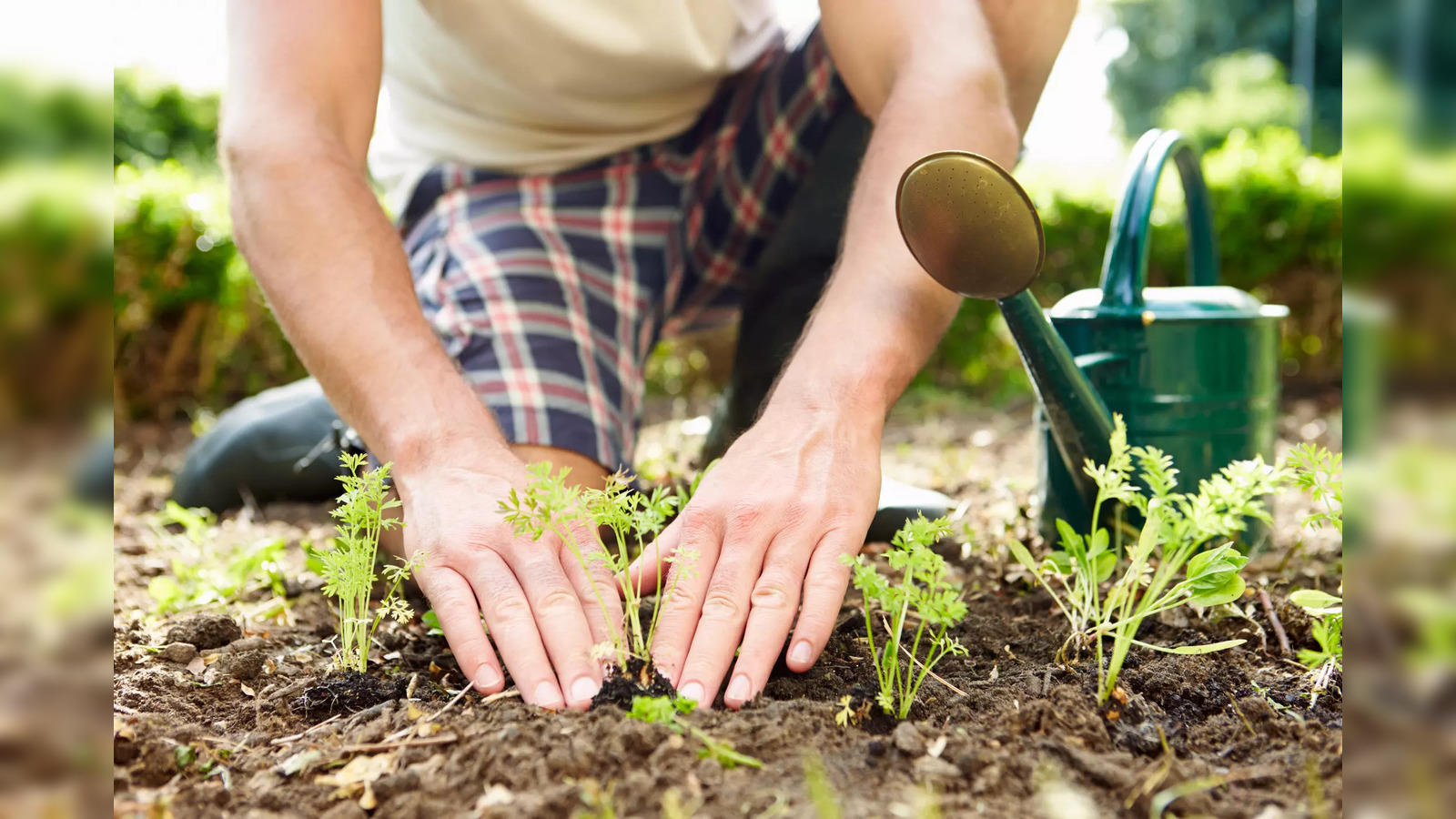From Amateur to Environment-friendly Thumb: a Newbie's Trip Into the World of Gardening
From Newbie to Eco-friendly Thumb: a Novice's Trip Into the Globe of Horticulture provides a thorough overview for people looking to grow their very own yard. gardening tips for beginners. From understanding the basics of plant selection and dirt prep work to repairing common gardening concerns, this publication outfits readers with the expertise and abilities required to transform their exterior spaces into flourishing gardens.
Recognizing the Fundamentals
The first action in coming to be an effective gardener is to understand the essential principles and methods that form the structure of horticulture. Comprehending the fundamentals is necessary for anybody who wishes to expand and support plants properly. One of the fundamental principles of gardening is to give plants with the ideal growing conditions. This includes taking into consideration variables such as sunshine, dirt high quality, water requirements, and temperature preferences. Various plants have varying demands, and it is vital to research study and understand these needs prior to choosing and planting them in your yard.

Additionally, comprehending parasite and disease administration is crucial for maintaining a healthy and balanced garden. Recognizing usual garden pests and diseases, along with finding out about natural and chemical control techniques, can aid prevent and treat problems that might emerge.
Picking the Right Plant Kingdoms
To make certain a successful gardening journey, beginner garden enthusiasts have to carefully select plants that straighten with their yard's details expanding problems. Choosing the right plants is important as it establishes the total wellness and productivity of the garden. Each plant has its very own set of needs, including sunshine, dirt type, moisture levels, and temperature level. By recognizing these demands and picking plants as necessary, garden enthusiasts can produce the ideal growing environment for their plants.
Among the first factors to take into consideration when selecting plants is the quantity of sunlight available in the garden. Some plants thrive completely sun, while others prefer partial and even complete shade. Evaluating the quantity of sunlight gotten in different locations of the garden will aid identify which plants will certainly thrive in each place.
Dirt type is an additional essential factor to consider. Different plants have various dirt preferences, ranging from well-draining sandy dirt to moisture-retaining clay soil. Performing a soil test can offer important details regarding the pH level and nutrient material of the dirt, aiding gardeners select plants that will prosper in their yard's details dirt conditions.
In addition, water demands play a significant function in plant choice. Some plants are drought-tolerant and call for minimal watering, while others prosper in wet environments. Taking into consideration the availability of water and the capability to supply appropriate watering is vital when selecting plants.
Last but not least, the neighborhood environment and temperature changes should be taken into consideration. Some plants are much more cold-hardy and can hold up against frost and freezing temperature levels, while others are more matched to exotic and cozy environments. Understanding the environment and choose plants accordingly will ensure their survival and success in the garden.
Preparing the Dirt
Correct dirt prep work is important for beginner gardeners to develop a nutrient-rich and productive foundation for their plants. Prior to planting, it is crucial to examine the dirt's nutrient, texture, and water drainage web content to make certain optimum growing conditions. One of the initial steps in dirt prep work is removing any kind of weeds or debris from the growing location. This assists avoid competitors for nutrients and minimizes the threat of diseases and parasites. Once cleared, the soil should be loosened to navigate to these guys enhance its framework and permit far better origin development. This can be done by tilling or digging the dirt, breaking up any compacted locations.
It is likewise important to check the dirt's pH degree to determine its level of acidity or alkalinity. Many plants like a somewhat acidic pH in between 6.0 and 7.0. Changes such as lime or sulfur can be included to change the pH accordingly. if the soil is also acidic or alkaline.
Adding organic matter, such as garden compost or well-rotted manure, is another crucial action in soil preparation. Organic matter enhances soil structure, enhances drain, and gives important nutrients for plant growth. It likewise serves as a sponge, aiding the soil retain moisture during dry periods.

Nurturing and Maintaining Your Garden
After preparing the dirt, newbie gardeners can start nurturing and keeping their garden to ensure healthy plant development and an abundant harvest. Supporting a yard involves numerous key tasks, consisting of watering, fertilizing, and securing plants from illness and insects.
Watering is important for plant survival, and it is critical to supply sufficient wetness without overwatering. Newbie garden enthusiasts ought to discover about the sprinkling requirements of their particular plants and change as necessary. It is advisable to water plants in the early morning to enable sufficient time for the foliage to completely dry prior to nightfall, minimizing the threat of illness.
Feeding is an additional vital facet of garden upkeep. Amateur gardeners must research the details dietary requirements of their plants and select ideal plant foods. Organic choices, such as garden compost or manure, can be valuable for total plant health and wellness and soil fertility.
Safeguarding plants from pests and conditions is a constant effort. Normal surveillance, very early discovery, and timely action are key to stopping considerable damage. Novice garden enthusiasts must acquaint themselves with typical pests and conditions in their location and find out about chemical or organic control techniques.
In addition to these tasks, normal weeding, trimming, and mulching ought to not be forgotten. Weeds complete with plants for sources, so removing them frequently is essential. Pruning assists shape plants and encourages much healthier development, while mulching preserves moisture, suppresses weeds, and regulates soil temperature level.
Troubleshooting Common Horticulture Issues
Garden enthusiasts may experience various typical gardening problems that require troubleshooting to preserve the health and vigor of their plants. One usual issue is pest infestation. Insects like aphids, slugs, and snails can damage plants, triggering damages to fallen leaves, stems, and blossoms. Garden enthusiasts can address this problem by utilizing natural insect control approaches, such as introducing natural predators or utilizing insecticidal soaps.
One more issue that gardeners typically encounter is nutrient deficiency. Plants call for a well balanced supply of nutrients to grow, and shortages can bring about stunted development, yellowing fallen leaves, and bad fruit growth. Performing a soil test can assist establish which nutrients are doing not have and enable gardeners to amend the soil accordingly with natural plant foods or compost.
Moreover, incorrect watering find out methods can also create troubles in the yard. Overwatering can cause root rot and fungal illness, while underwatering can cause nutrient and wilting imbalances. Locating the best balance is click essential, and gardeners must keep track of dirt wetness levels and readjust watering timetables as necessary.
Last but not least, environment and weather can pose challenges to garden enthusiasts. Extreme temperature levels, frost, solid winds, and heavy rain can harm plants. Safety measures such as using frost covers, windbreaks, and supplying color can assist mitigate these problems.
Conclusion
To conclude, this article has offered a detailed introduction of the journey from being a newbie to coming to be an environment-friendly thumb in the world of horticulture. By understanding the essentials, selecting the right plants, preparing the dirt, and nurturing and preserving the garden, novices can get over common horticulture concerns and efficiently grow their own lavish and vivid gardens. With devotion and technique, any person can establish the abilities and understanding required to become an experienced gardener.
Various plants have differing requirements, and it is vital to study and understand these needs before picking and planting them in your yard.
By understanding these needs and choosing plants as necessary, garden enthusiasts can develop the optimal expanding environment for their plants. Newbie Gardening.
Various plants have different soil preferences, ranging from well-draining sandy dirt to moisture-retaining clay soil. Carrying out a dirt examination can supply beneficial details about the pH degree and nutrient web content of the dirt, helping garden enthusiasts select plants that will certainly flourish in their garden's particular soil problems.
By recognizing the basics, picking the right plants, preparing the dirt, and nurturing and preserving the garden, beginners can overcome common gardening concerns and successfully grow their very own rich and lively yards.
Comments on “Master the Fundamentals: Home Gardening for Beginners Made Simple”